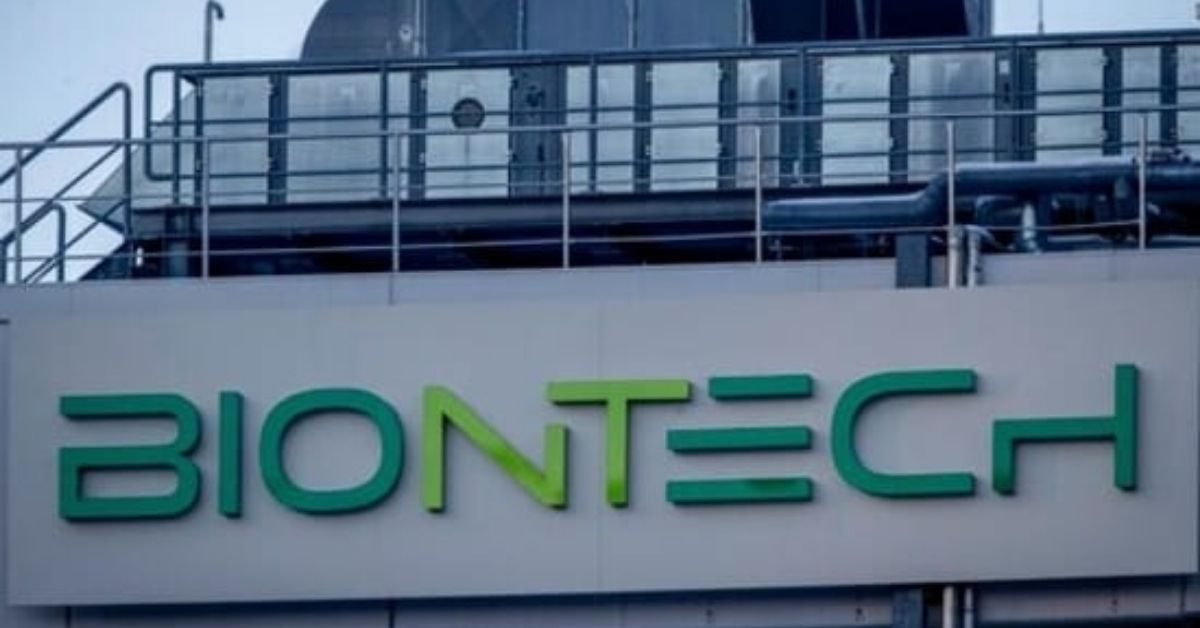German biotechnology company BioNTech, who developed the COVID-19 vaccine —BNT162b2 — with American pharmaceutical firm Pfizer, will establish its Asia-Pacific regional headquarters in Singapore, where it will also set up an mRNA manufacturing facility.
The company plans to open its office in 2021, as well as begin construction of its manufacturing plant, which is expected to be operational by 2023, and create at least 80 jobs. This is also the company’s first manufacturing facility outside Germany and its first office outside of Europe and America.
The facility will produce several hundreds of millions of mRNA vaccine doses per year, boosting BioNTech’s capacities for vaccines and therapeutics for cancer and infectious diseases. More importantly, it will help build a rapid-response production capability to address the threat of future pandemic threats in the Asia-Pacific region and open the company to a dynamic marketplace with a population of 655 million.
In addition to BioNTech, French pharmaceutical giant Sanofi announced in April 2021 that it was investing 400 million Euros (US$474 million) over five years to build a vaccine production center in Singapore, which is expected to create 200 local jobs as well as enable the firm to also respond to future pandemic threats in the region. The plant is expected to begin production in 2026 and will have the capacity to produce three or four different types of vaccines simultaneously.
Why Singapore?
Pharmaceutical and biomedical industries: Future drivers of economic growth
Singapore’s pharmaceutical and biomedical industries are the future drivers of economic growth.
A pro-business environment, thriving research and development landscape, a large selection of skilled local talent, and quality infrastructure, has attracted some of the world’s largest biomedical and pharmaceutical companies, such as Pfizer, Sanofi, GlaxoSmithKline, Novartis, and Abbott to establish their regional headquarters in Singapore. There are already more than 50 manufacturing plants in Singapore and the pharmaceutical sector alone contributes to five percent of total GDP.
The country is only one of a few that can export more pharmaceutical products (more than S$8 billion (US$5.9 billion)) than it imports (US$3 billion).
Best-in-class infrastructure
In the last 30 years, there have been no major observations by regulators like the US Food and Drug Administration (FDA) that regularly audit manufacturing facilities, which speaks to the quality of Singapore’s infrastructure and workforce. Ready-built facilities, such as the JTC Space @ Tuas Biomedical Park (TBP), provide laboratory space that can be out-fitted for single-use technology (SUT) manufacturing activities.
SUTs allow pharma companies to set up their manufacturing facilities quickly at reduced costs and allows the company to produce multiple products in a single suite.
Moreover, to develop flexible capacity options, the government has collaborated with contract manufacturing organizations (CMO). CMOs are companies that serve other companies within the pharmaceutical industry with comprehensive services ranging from drug development to drug manufacturing, on a contract basis. CMOs can expand their capabilities and capacity for commercial and clinical-scale production, as well as more niche areas, such as gene therapy, for pharma companies looking to outsource their manufacturing requirements.
An efficient set up process
Singapore’s transparent business and legal regulatory framework mean incorporating a company (private limited company) is a seamless process, and the time and cost to set up are comparatively limited. Businesses that are ready to set up can use Bizfile, the electronic filing system that combines the business and tax requirements into a single form.
Through Bizfile, it costs S$300 (US$221) to register the company and S$15 (US$11) to register the company’s name, which will then be reserved for 120 days. Other key requirements that investors must adhere to include:
- A certificate proving the subsidiary is part of the parent company;
- The company must have at least one shareholder (an individual or a corporate entity);
- Investors must indicate the amount of issued capital by the shareholder (the minimum issued capital is US$1);
- The appointment of at least one director who is either a Singaporean citizen, permanent resident, or EntrePass holder;
- The director needs to be at least 18-years of age and must not have a history of misconduct or bankruptcy in their work history;
- The subsidiary will need to supply a registered local office address (a registered address refers to the place where all the company’s communications and notices are sent to, and where all the records are kept); and
- The company must appoint a secretary within six months of incorporation (the secretary must also be a resident in Singapore).
Favorable tax environment
Singapore has one of Asia’s most attractive corporate tax regimes. Corporate income tax (CIT) is set at the 17 percent rate, the lowest among ASEAN members.
Furthermore, companies are not taxed on most types of foreign-sourced income (such as dividends) that are remitted into Singapore. This is provided they pay the tax in the source country with a rate of at least 15 percent. There is also no capital gains tax in the city-state.
Another benefit for Singapore-based businesses is the country’s comprehensive network of 85 double-tax agreements (DTA). These DTA include treaties with all ASEAN members, which provides businesses with a competitive edge.
Comprehensive free trade network
Singapore has also an unparalleled free trade network (FTA) compared to its ASEAN peers, which numbers at 24. The country is a member of one of the largest combined free trade areas through its FTA with ASEAN, China, India, the EU, and Hong Kong.
Source : Asean Briefing







